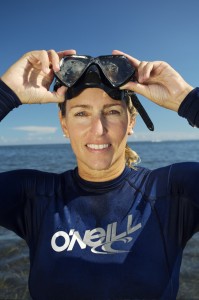A guest blog post by Tristan Hunt and the Sea Guardians series author, Ellen Prager: Storytelling packs a powerful punch. Our ancestors used it to pass on critical information from one generation to the next. Hollywood moviemakers use it to grab an audience and keep them enthralled. Yet scientists have long shied away from using stories to engage an audience or pass on information. I say it’s time to change, to embrace storytelling and use it to excite people about science, especially to engage young teens about the ocean and marine life. Because now, maybe more than ever, we need a new generation of informed, passionate, and engaged citizens to help restore and protect the ocean. Why focus on young teens, middle graders? It is a very influential time in a person’s life. Topics that grab a middle grader’s attention may inspire a career choice or lifelong passion. Teens exert great power over their peers as well as their parents. It is also a time where the pressures of high school have yet to take hold. And among our young teens are the future leaders in innovation, science, policy, conservation, or philanthropy. Fantasy fiction series have proven especially effective at engaging a young teen audience. Just look at the magic of Harry Potter or the power of Percy Jackson. That’s where my new series Tristan Hunt and the Sea Guardians comes in. By combining fantasy, adventure, and humor with ocean science, teens get a fun, fast-paced read, while also learning about the sea, marine life, and real-world issues. Each book includes actual ocean problems such as shark finning, marine pollution, or overfishing along with fun facts about the amazing abilities of sea creatures. In book one, The Shark Whisperer, an octopus showcases its incredible camouflage and contortionist abilities – all real. In book two, The Shark Rider, a mantis shrimp demonstrates its powerful strike, which happens to be the fastest in the animal kingdom. Humor is showcased in the mantis shrimp’s anger management issue, a shark getting dentures and with another shark that is mysteriously weak (vegan). Many of the teens’ experiences in the stories are based on my own as a marine scientist – and with maps in each book a bit of geography learning is included. Storytelling through fiction for young teens offers an enormous opportunity. With the inclusion of ocean science, books can promote literacy while also getting young readers to think about marine life, the ocean, and the issues that today threaten the very health of the sea and its inhabitants.  Ellen Prager is a marine scientist who has journeyed to exotic locales to study the sea, lived in an undersea laboratory for more than a week to do research on coral reefs and broadcast into schools, and now spends much of her time bringing earth and ocean science to the public. She is known nationally for her ability to make science understandable, relevant, and especially entertaining for the layperson. She is a frequently requested speaker at a wide variety of events, from Capitol Hill to aquariums and classrooms, and has appeared as an expert on The Today Show, Good Morning America, CNN's Larry King, Discovery Channel and more. You can follow Dr. Prager on twitter @elprager, go to her Facebook page (or the Facebook fan page for Tristan Hunt and the Sea Guardians), or check out www.tristan-hunt.com. Keep your eyes and ears peeled for Book Three of Tristan Hunt and the Sea Guardians, Stingray City, which comes out in May 2016!
Ellen Prager is a marine scientist who has journeyed to exotic locales to study the sea, lived in an undersea laboratory for more than a week to do research on coral reefs and broadcast into schools, and now spends much of her time bringing earth and ocean science to the public. She is known nationally for her ability to make science understandable, relevant, and especially entertaining for the layperson. She is a frequently requested speaker at a wide variety of events, from Capitol Hill to aquariums and classrooms, and has appeared as an expert on The Today Show, Good Morning America, CNN's Larry King, Discovery Channel and more. You can follow Dr. Prager on twitter @elprager, go to her Facebook page (or the Facebook fan page for Tristan Hunt and the Sea Guardians), or check out www.tristan-hunt.com. Keep your eyes and ears peeled for Book Three of Tristan Hunt and the Sea Guardians, Stingray City, which comes out in May 2016!





Comments
Laura (not verified)
Thu, 05/14/2015 - 3:23pm
Permalink
Add new comment